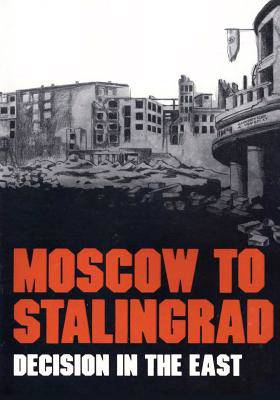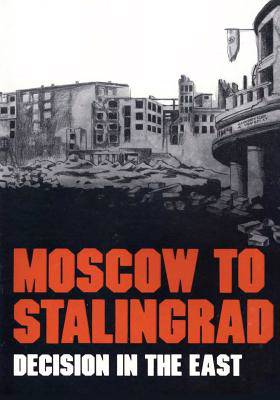
- Afhalen na 1 uur in een winkel met voorraad
- Gratis thuislevering in België vanaf € 30
- Ruim aanbod met 7 miljoen producten
- Afhalen na 1 uur in een winkel met voorraad
- Gratis thuislevering in België vanaf € 30
- Ruim aanbod met 7 miljoen producten
Zoeken
Omschrijving
"Moscow to Stalingrad: Decision in the East" is the second to be completed in a projected three-volume history of the German-Soviet conflict in World War II. The first, "Stalingrad to Berlin: The German Defeat in the East", covered the Soviet Army's liberation of its own territory and its drive across central and southeastern Europe. In the present volume, the German and Soviet forces initially confront each other on the approaches to Moscow, Leningrad, and Rostov in the late-1941 battles that produced the first major German setbacks of the war and gave the Soviet troops their first tastes of success. Later, the pendulum swings to the Germans' side, and their armies race across the Ukraine and into the Caucasus during the summer of 1942. In the course of a year, the Soviet Command goes from offensive to defensive and, finally, at Stalingrad, decisively to the offensive- meanwhile, frequently in desperate circumstances, building the strength and proficiency mat will enable it to mount the relentless thrusts of the succeeding years. In tracing the shifting Soviet and German fortunes, the author has had full access to the German military records, most of which fell into American and British hands. He has also made extensive use of the Soviet war histories, memoirs, and periodical literature. The result is both a panorama of battles, among them some of the greatest in the history of warfare, and an inquiry into the forces in war that shape and test the military power of nations.
Specificaties
Betrokkenen
- Auteur(s):
- Uitgeverij:
Inhoud
- Aantal bladzijden:
- 576
- Taal:
- Engels
- Reeks:
Eigenschappen
- Productcode (EAN):
- 9781518780219
- Verschijningsdatum:
- 26/10/2015
- Uitvoering:
- Paperback
- Formaat:
- Trade paperback (VS)
- Afmetingen:
- 178 mm x 254 mm
- Gewicht:
- 984 g

Alleen bij Standaard Boekhandel
+ 76 punten op je klantenkaart van Standaard Boekhandel
Beoordelingen
We publiceren alleen reviews die voldoen aan de voorwaarden voor reviews. Bekijk onze voorwaarden voor reviews.











